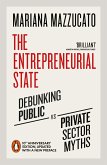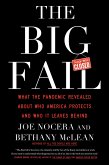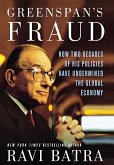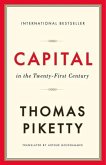In one lifetime, GDP, or Gross Domestic Product, has ballooned from a narrow economic tool into a global article of faith. As The Little Big Number demonstrates, this spells trouble. While economies and cultures measure their performance by it, GDP ignores central facts such as quality, costs, or purpose. It only measures output: more cars, more accidents; more extraction, more pollution - all count as success. Sustainability and quality of life are overlooked. Losses don't count. The world can no longer afford GDP rule - GDP ignores real development. Dirk Philipsen demonstrates how the history of GDP reveals unique opportunities to fashion smarter goals and measures. The Little Big Number explores a possible roadmap for a future that advances quality of life rather than indiscriminate growth.
Hinweis: Dieser Artikel kann nur an eine deutsche Lieferadresse ausgeliefert werden.
Hinweis: Dieser Artikel kann nur an eine deutsche Lieferadresse ausgeliefert werden.
"[Philipsen] is not the first to question the utility of GDP estimates, but he may be the most exasperated. His comprehensive history. . . compares GDP to any number of villains in order to make tangible the number's many flaws. . . . He is keyed into how a culture that once burgeoned can implode, and he is anxious about ours."--Katy Lederer, New Yorker








